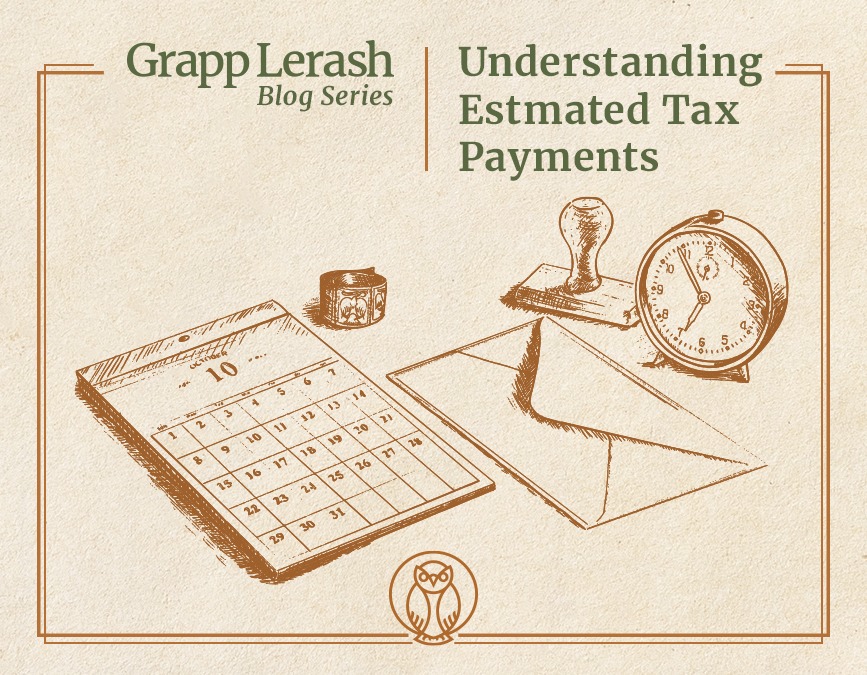Understanding Estimated Tax Payments: Who's Liable, When to Pay, and When to Consult a Tax Professional
Estimated tax payments are an essential part of the tax system for individuals and businesses in the United States. They help ensure that taxpayers meet their tax obligations throughout the year rather than in one lump sum during tax season. In this brief guide, we’ll explore who is liable for making estimated tax payments, when they are due, and when it’s advisable to consult with a tax professional.
Who is Liable for Estimated Tax Payments:
Individuals, self-employed individuals, and businesses with taxable income are generally liable for making estimated tax payments. If you expect to owe $1,000 or more in taxes after accounting for withholdings and credits, you should consider making estimated tax payments.
This includes:
- Self-employed individuals
- Freelancers and gig workers
- Small business owners
- Investors with substantial income from investments
- Anyone with income not subject to withholding (e.g., rental income, dividends, and capital gains)
When are Estimated Tax Payments Due:
Estimated tax payments are typically due quarterly on the following dates:
- April 15th for income received from January 1st to March 31st.
- June 15th for income received from April 1st to May 31st.
- September 15th for income received from June 1st to August 31st.
- January 15th of the following year for income received from September 1st to December 31st.
If the due date falls on a weekend or holiday, the payment is due on the next business day.
When to Consult with Your Tax Professional:
Consulting a tax professional can be a smart move when dealing with estimated tax payments, especially in the following situations:
- Changing Income: If your income fluctuates significantly from year to year, a tax professional can help you estimate your payments accurately, preventing penalties for underpayment.
- Complex Tax Situations: If you have a complex financial situation involving multiple income sources, deductions, and credits, a tax professional can ensure you’re paying the right amount and taking advantage of all available tax benefits.
- New Tax Laws: Tax laws are subject to change, and a tax professional can keep you updated on any changes that may affect your estimated tax payments.
- Business Changes: If you own a business, changes in your business structure, expansion, or contraction can impact your estimated tax liability. A tax professional can help you navigate these changes.
- Avoiding Penalties: Underpayment penalties can be steep. A tax professional can help you minimize these penalties by ensuring you pay enough throughout the year.
- Peace of Mind: Consulting a tax professional can provide peace of mind, knowing that your estimated tax payments are on track and your tax obligations are being managed effectively.
Understanding estimated tax payments is crucial for individuals and businesses with varying income sources. It’s essential to know when you’re liable, when payments are due, and when to seek the guidance of a tax professional. By staying informed and seeking expert advice when needed, you can ensure you meet your tax obligations efficiently and avoid costly penalties.



Recent Comments